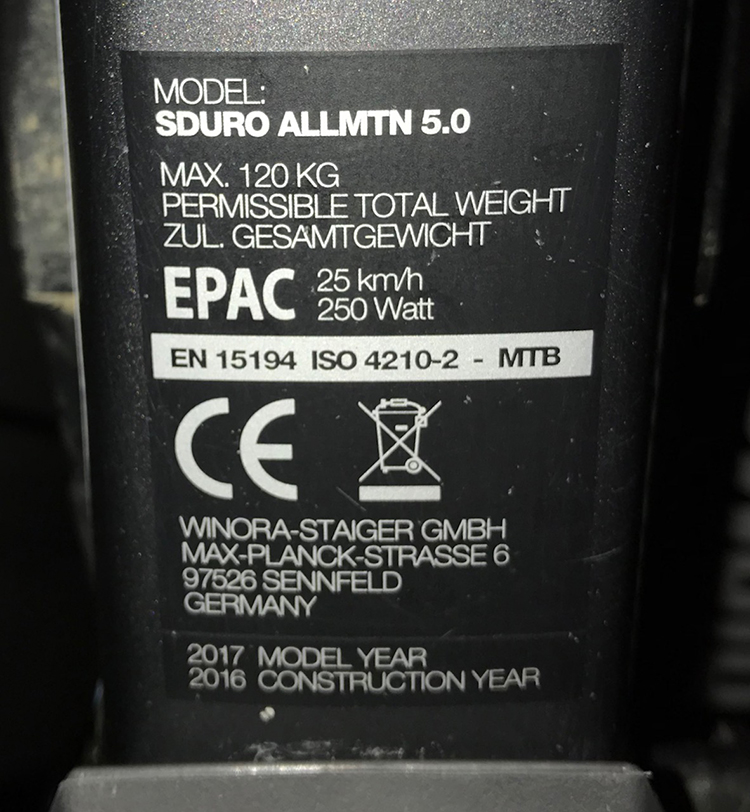Regulations, legislation and standards
< Back | Last revised: 19th March 2018
Disclaimer


The information below summarises the relevant regulations for electric bikes as far as we (The ACT) understand at the time of writing. We believe that the below is an accurate interpretation of what the law states, however we cannot accept liability for any information that is incorrect or has since become out of date. We also cannot police any retailers who conduct any illegal activity either through choice or through ignorance of the law.
"Ultimately the interpretation of the law is a matter for the courts based on individual facts of any particular case. You are therefore advised to consult the relevant legislation and, if necessary, seek independent advice on specific legal questions." [1]
Key points
- E-bikes that meet the current EAPC regulations, minus a few exceptions, are treated as normal bicycles. The basic requirements are:
- Any other e-bikes that do not meet the EAPC regulations are subject to type approval and any associated registration, tax and licencing.
We are awaiting government confirmation in terms of how e-bike regulations may be affected by the exit from the EU. To read all that we know so far please visit EU Exit updates for e-bikes.
EAPC Regulations |
Pedal Cycles Regulations |
Type approval |
"Twist and Go" cycles |
Northern Ireland |
EAPC Regulations |
Pedal Cycles Regulations |
Type approval |
"Twist and Go" cycles |
Northern Ireland |
Last revised: 19th March 2018
The Pedal Cycles (Construction and Use) (Amendment) Regulations 2015


These regulations, which also came into force on 6th April 2015, detail requirements for EAPCs with regards to the brakes and the information about the vehicle that needs to be shown on the EAPC (amongst other things).
The requirements include:
- the EAPC must be either;
- fitted with a plate which is securely fixed, clearly visible and readily accessible, displaying;
- the name of the manufacturer;
- the nominal voltage of the battery; and
- the continuous rated output of the motor.
Generally speaking these are most common on EAPCs in use before April 2015.
- visibly and durably marked with;
- the name of the manufacturer;
- the maximum speed at which the motor can propel the vehicle (in mph or kph); and
- the maximum continuous rated power of the motor (in W or kW).
Generally speaking this is most common on EAPCs made since April 2015.
or;
- fitted with a plate which is securely fixed, clearly visible and readily accessible, displaying;
- the EAPC must be fitted with brakes that comply with paragraph 4.6.8 of BS EN ISO 4210-2:2014 and are in good working order.
A full version(s) of these regulations can be found on Legislation.gov.uk - The Pedal Cycles (Construction and Use) Regulations 1983 // (Amendment) Regulations 2015


